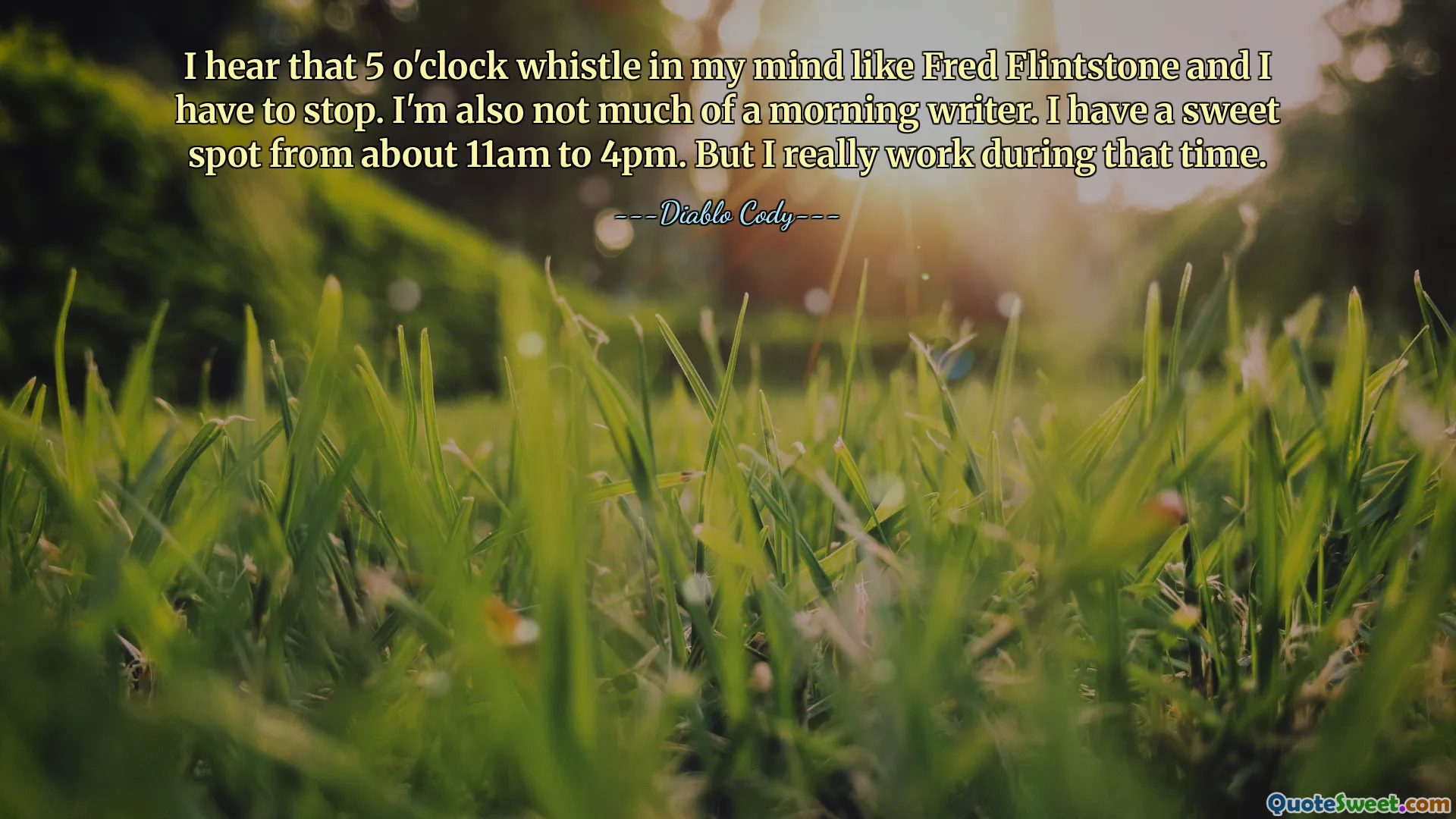
I hear that 5 o'clock whistle in my mind like Fred Flintstone and I have to stop. I'm also not much of a morning writer. I have a sweet spot from about 11am to 4pm. But I really work during that time.
This quote offers an insightful look into the author's daily rhythm and creative process. It highlights how individual productivity is often aligned with one’s internal biological clock or personal habits. The vivid imagery of hearing a "5 o'clock whistle" like Fred Flintstone, a character famous for the frequent use of a whistle to signal the end of work, symbolizes a clear mental signal for stopping work or shifting gears. It reflects the importance of ritual and routine in managing work-life boundaries. Additionally, the author’s acknowledgment of not being a morning person underscores the reality that creative energy peaks at different times for different individuals. The designated "sweet spot" from 11am to 4pm suggests a strategic approach to harnessing one's most alert and inventive hours, rather than forcing creativity during less optimal times. Recognizing and respecting these natural productivity windows can lead to more efficient and satisfying work. It also hints at the importance of self-awareness for anyone seeking to optimize their work habits—being honest about personal rhythms instead of adhering rigidly to conventional schedules. This flexibility allows for a more harmonious integration of work and personal well-being. Overall, the quote conveys a sense of self-knowledge and intentionality that are crucial for maintaining productivity and creative flow, especially in professions demanding sustained mental engagement. Embracing one's unique schedule can foster better quality work and increased personal satisfaction in the creative process.







